Introduction
The University of Basel is a public research university in Basel, Switzerland. It is also the oldest university in Switzerland. Its history can be traced back to 1460. It has an important position in the field of higher education in Europe and even the world. It has cultivated many outstanding talents and has made outstanding achievements in academic research and teaching.
Overview
Student size: There are 13,139 students in 2020, of which international students account for 27%.
Number of teachers: There are 4,700 academic staff.
History and establishment time
The University of Basel was founded on April 4, 1460, and its establishment is related to the Basel Conference. There was a temporary university between 1432 and 1448, which was officially closed in 1448. On November 12, 1459, Pope Pius II issued a papal bull, and the official opening ceremony was held at the Basel Cathedral on April 4, 1460.
School strength
Teaching staff: There are 4,700 Academic staff, including 378 professors, with a strong faculty. Many teachers are experts and scholars with international influence in their respective fields, providing students with high-quality teaching and guidance.
Research results: The University of Basel has achieved remarkable research results in many disciplines, especially in biomedicine, neuroscience, chemistry, economics and other fields. The research results have a significant influence in the international academic community and have made important contributions to the development of related disciplines.
Academic resources: As one of the oldest universities in Switzerland, the University of Basel has accumulated rich academic resources. Its library is one of the largest and most important libraries in Switzerland, with a collection of more than three million books, providing students and researchers with a vast treasure trove of knowledge.
Institutional nature
Public research university.
Educational philosophy
The University of Basel focuses on cultivating students' critical thinking, innovation and independent research capabilities, emphasizes academic freedom and interdisciplinary research, encourages students to explore and communicate between different disciplines, in order to cultivate professionals with global vision and comprehensive literacy, and provides students with an open and free academic environment to promote their all-round development and personalized growth.
Key laboratories and disciplines
Key disciplines:
Medicine: Clinical medicine, pharmacology and toxicology, neuroscience and behavior and other medical-related disciplines have high rankings and influence internationally. The school has a long history and profound accumulation in medical research and education, has cultivated many outstanding medical talents, and has made important contributions to the development of the medical field.
Biology: Biochemistry, biotechnology and applied microbiology, cell biology and other disciplines in the field of biology have also performed well. The research results have received widespread attention in academia and industry, providing important theoretical support and technological innovation for the research and application of life sciences.
Chemistry: Chemistry is ranked first in the world 240, and also has certain advantages in sub-fields such as physical chemistry. The school's chemical research has achieved important results in both theory and application, providing technical support for the development of the chemical industry and related fields.
Economics: As one of the important economic centers in Switzerland, the economics major of the University of Basel has a high level in teaching and research, has trained a large number of economic management talents, and has contributed to regional and global economic development.
Key laboratories or research centers:
Biozentrum: It is an important research center focusing on biomedical research. It has advanced experimental equipment and an excellent scientific research team. It conducts cutting-edge research in the fields of cell biology, molecular biology, neuroscience, etc., and has made important contributions to the development of life sciences.
Institute for European Global Studies: The institute is dedicated to the study of European and global issues, involving multiple fields such as politics, economy, and culture. It provides an important platform for interdisciplinary research and international cooperation, and promotes in-depth understanding of global issues and exploration of solutions.
Faculty **
The University of Basel has the following faculties:
Faculty of Theology: Focuses on research and teaching in religious beliefs, theological theories, etc., cultivates theological professionals, and provides professional support for religious studies and religious affairs management. Faculty of Law: The law major has a high reputation in Switzerland and even in Europe. The faculty focuses on cultivating students' legal literacy and practical ability, and has provided a large number of outstanding talents for the legal industry, covering teaching and research from basic legal theory to various professional legal fields.
Faculty of Medicine: Medical education and research is one of the important characteristics of the University of Basel. The faculty has multiple professional directions, including clinical medicine, basic medicine, pharmacy, etc., and has trained many medical experts and researchers, making important contributions to the development of medical science and human health.
Faculty of Humanities and Social Sciences: Covering multiple disciplines such as philosophy, history, literature, sociology, and psychology, it focuses on cultivating students' humanistic literacy and social science research capabilities, and provides important intellectual support for cultural inheritance, social development, and the construction of human spiritual civilization.
Faculty of Science: Including natural science disciplines such as mathematics, physics, chemistry, and biology, the faculty is committed to the research and application of basic theories of natural sciences, cultivating students' scientific thinking and experimental skills, and providing talent guarantee for scientific and technological innovation and the development of science and technology.
Department of Psychology: The Department of Psychology has achieved remarkable results in both teaching and research. It focuses on cultivating students' theoretical knowledge of psychology and practical application ability, and has trained professionals in the fields of mental health education, psychological counseling, and psychotherapy.
Department of Business and Economics: It combines multidisciplinary knowledge such as economics, management, and business to cultivate professionals with business acumen and economic analysis capabilities, and provides talent support and intellectual contribution to the fields of corporate management, financial investment, and marketing.
Ranking
Global ranking: Tied for 150th place in the 2022-2023 US News World University Rankings.
European ranking: 57th place in the best global universities in Europe.
Swiss ranking: 6th place in the best global universities in Switzerland.
Subject ranking: Biology and biochemistry, biotechnology and applied microbiology, heart and cardiovascular system, cell biology, clinical medicine, immunology and other subject areas are ranked relatively high, among which neuroscience and behavior are ranked 42nd, pharmacology and toxicology are ranked 80th, etc.
Expenses
Tuition fees: The tuition fees of Swiss public universities are relatively low. The tuition fees of the University of Basel vary depending on the major and degree level, and are generally around 500-800 Swiss francs per semester.
Living expenses: The cost of living in Basel is relatively high. The monthly living expenses of students are about 1500-2000 Swiss francs, including accommodation, food, transportation, entertainment and other expenses.
Campus
Geographic location: Located in Basel, Switzerland. Basel is the third largest city in Switzerland and one of the important cultural, economic and transportation centers in Switzerland. It is located at the junction of Switzerland, France and Germany. It has unique geographical advantages and a multicultural atmosphere, providing students with abundant internship and employment opportunities, as well as a broad international exchange platform.
Campus facilities: The campus has diverse architectural styles, integrating historical buildings and modern facilities. The school has modern teaching buildings, laboratories, libraries, gymnasiums and other teaching and living facilities, providing students with a good learning and living environment.
-
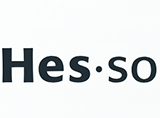
University of Applied Sciences and Arts of Western Switzerland
-

University of Basel
-

Swiss Federal Institute of Technology Zurich
-
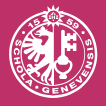
University of Geneva
-

University of Bern
-
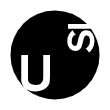
Università della Svizzera Italiana
-
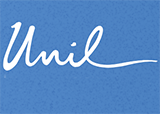
University of Lausanne
-

Franklin University Switzerland, FUS
-
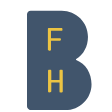
Bern University of Applied Sciences
-

University of St. Gallen
-

Mesoamerican University
-

Istmo University
-

Mariano Galvez University of Guatemala
-

Regional University of Guatemala
-

Galileo University
-

Francisco Marroquín University
-

Rafael Landívar University
-

University of the Valley of Guatemala
-

University of San Carlos of Guatemala
-

Technological Institute of Tlaxcala Plateau
-

Golfo University
-

Technological University of South Sonora
-

Technological University of Huejotzingo
-

Tizimín Institute of Technology
-

Chilpancingo Institute of Technology
